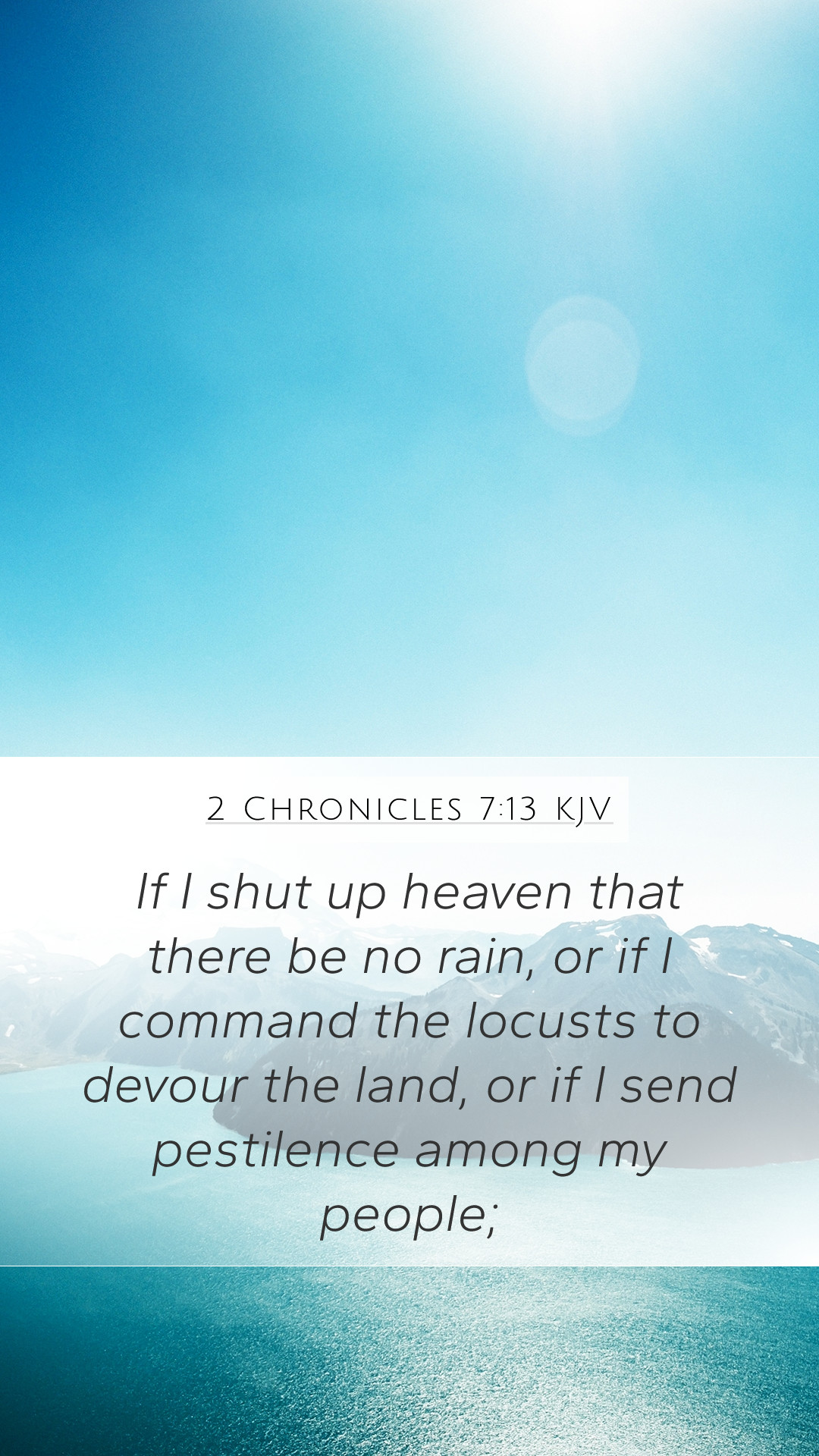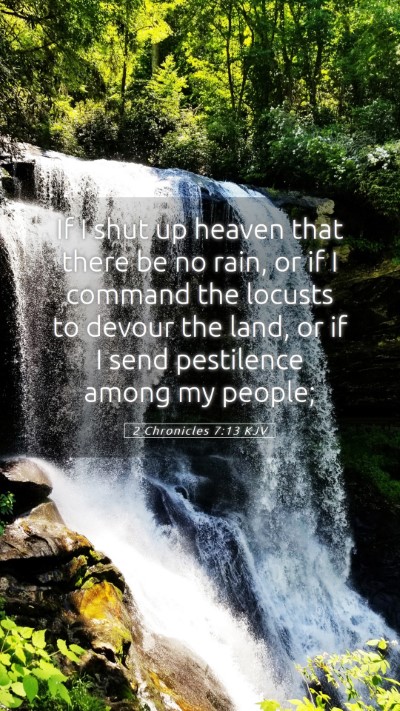Understanding 2 Chronicles 7:13 - Bible Verse Commentary
Verse: 2 Chronicles 7:13 - "If I shut up heaven that there be no rain, or if I command the locusts to devour the land, or if I send pestilence among my people."
Overview
This verse is part of God's communication to Solomon following the dedication of the temple. It highlights God's sovereignty over nature and His direct role in the affairs of His people. The implications of the verse are significant for understanding God's relationship with Israel and the consequences of the nation's actions.
Meaning and Interpretation
The key elements of this verse involve God's authority to control the elements and the resulting implications for His people. Through historical context and scriptural analysis, we gather valuable insights from prominent biblical commentators.
Commentary Insights
-
Matthew Henry:
Henry emphasizes that this verse illustrates God's power over creation and His governance in the world. He points out that withholding rain signifies divine displeasure and is often a form of punishment for sin. The verse serves as a reminder that afflictions in life, such as famine and pestilence, may stem from a need for repentance among God's people.
-
Albert Barnes:
Barnes discusses the consequences of disobedience in Israel's history, where drought and locust plagues were seen as judgments from God. He indicates that these calamities are not arbitrary but are rather a call for the people to return to God. This condition emphasizes the importance of repentance and collective accountability in the face of divine judgment.
-
Adam Clarke:
Clarke elaborates on the metaphorical implications of God's actions. He notes that the commands to the elements represent God's comprehensive control over life and history. Clarke stresses the need for humility and turning to God in times of trial, highlighting that the people's response to calamity should be to seek reconciliation with God.
Application of the Verse in Daily Life
Understanding the implications of 2 Chronicles 7:13 encourages individuals and communities to reflect on their spiritual state. During times of personal or societal crisis, this verse serves as a reminder to assess one's relationship with God, to repent for any wrongdoing, and to seek restoration through prayer and humility.
Additional Biblical Cross References
- Deuteronomy 11:17: Warns of the consequences of disobedience, mentioning that turning away from God will bring drought.
- 2 Chronicles 6:26-27: Solomon’s prayer acknowledges the possibility of famine as a response from God due to sin.
- Joel 1:4: Describes a locust plague as a symbol of divine judgment and a call for national repentance.
- Amos 4:7-9: God explains how He withheld rain and sent plagues as warnings to turn back to Him.
- Haggai 1:11: Reflects on God’s control over nature affecting productivity as a sign of their disobedience.
Final Thoughts
This verse serves not only as a historical account of God’s covenant with Israel but also as a timeless reminder of our need to maintain a faithful relationship with God. In times of distress, acknowledging God's sovereignty and responding with prayer, repentance, and humility can lead to restoration. The teachings found in 2 Chronicles 7:13 echo through ages, calling believers towards introspection and action in their faith journey.
Study and Reflection Resources
For those engaging in Bible study groups or seeking online Bible study, the reflections on this verse provide fertile ground for discussion. Utilize Bible study tools and resources to dive deeper into the historical and cultural context. Various Bible study guides are available to further enhance understanding and application of these teachings.


